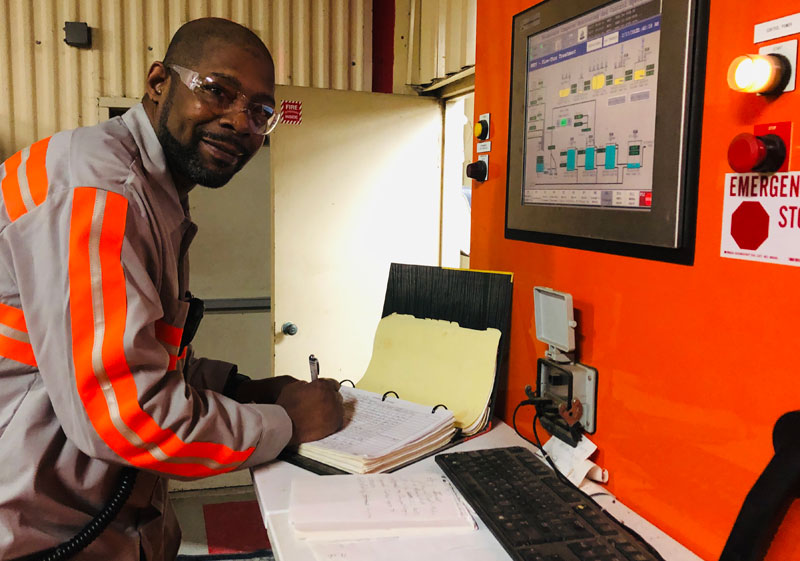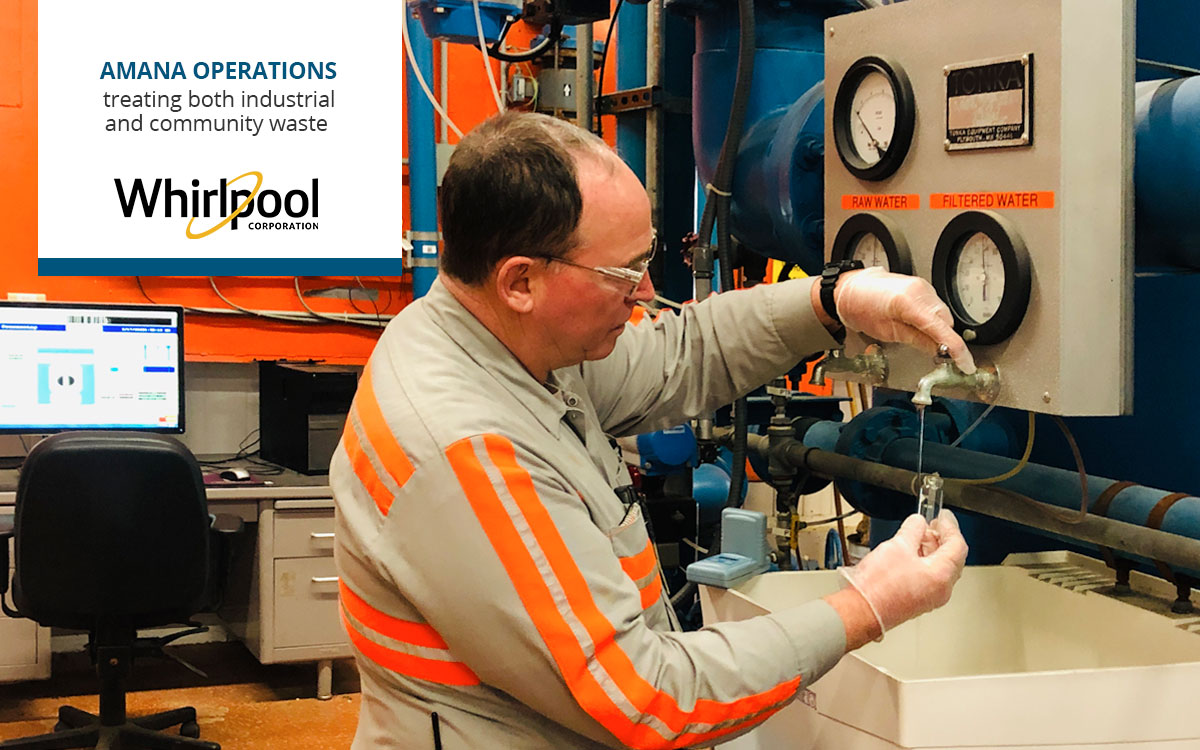Whirlpool Corp’s Amana, Iowa Operations provides wastewater treatment for local Middle Amana community
A few yards away from where thousands of Whirlpool Corp. employees are busily building refrigerators at its Amana, Iowa plant, a dedicated team of specialists is working around the clock to treat the wastewater generated each day by the plant—while also processing wastewater for the residents of nearby Middle Amana, Iowa, as well.
This symbiotic relationship has been going on since 1980, when an agreement was signed between Amana Refrigeration and the Middle Amana Sanitary District.
Whirlpool is happy to be the one who takes care of this service because we care about our community and we care about the impact we make on the environment around us.”
“The history goes back even further than that, though” says Matt Helmuth, who oversees the wastewater facility for Whirlpool Corp. Amana brand was founded in 1934 by George Foerstner, and went on to build the first upright freezer for the home, the first side-by-side refrigerator, the first bottom-freezer refrigerator, and obtained the first patent on a self-defrosting refrigerator, and after merging with Raytheon, built the first consumer microwaves.
“The original building goes back to 1888, and through industrialization and acquisitions in the 1960s and 1970s, the building continued to get bigger.”
In the 1970s, the community and the plant both realized that they needed to start thinking about some type of wastewater treatment, and eventually came upon a single solution to serve both the plant and the growing local municipality.
 “So here we are in 2022 and we’re still continuing that relationship with the local community in the preservation of the environment through treating both the industrial and community waste,” says Helmuth.
“So here we are in 2022 and we’re still continuing that relationship with the local community in the preservation of the environment through treating both the industrial and community waste,” says Helmuth.
Part of these efforts includes reducing the amount of waste that the plant needs to treat, and using methods to naturally break down biological waste. Multiple employees of Whirlpool Corp’s plant are dedicated to working solely on wastewater treatment, with several holding wastewater treatment operator licenses issued by the state of Iowa.
“Our goal is to always have licensed operators on site to maintain the systems,” says Daron Tanko, who supervises the treatment plant, which runs three shifts daily during the week, with additional staffing on the weekend. Each day this team treats from 30,000 to 100,000 gallons of sanitary waste (sewage) and up to 15,000 gallons of industrial waste. In addition, the team conducts field testing six days per week and must meet strict standards for sample testing by the State of Iowa three times weekly.
“Whirlpool is happy to be the one who takes care of this service because we care about our community,” says Tanko, “and we care about the impact we make on the environment around us.”
It’s a two-way relationship, as Middle Amana provides the plant with potable drinking water from local wells, as part of a relationship that has gone on for decades.
“I couldn’t be prouder of the work that Daron and his team have done on wastewater treatment and environmental impact reduction,” says Helmuth. “Those 12 employees come in every day to the treatment plant and play an important role at Whirlpool and in the community. As a member of this community as well, I really appreciate this service and the role we play here.”
